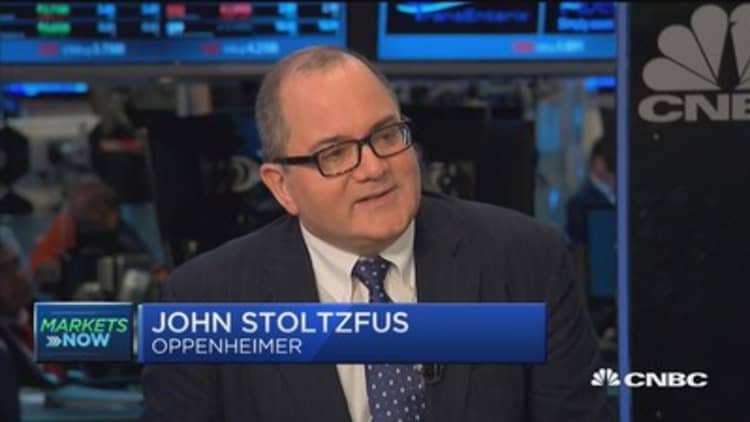
U.S. stocks hit new all-time highs last week, with four consecutive weeks of gains, but one chief investment strategist warned investors that the recent rally could cool as temperatures do.
"We remember all those romances back at summer camp; they were exciting, they were hot, they were thrilling but when summer camp ended, they ended," Michael Arone, State Street Global Advisors chief investment strategist told CNBC's "Squawk on the Street" Monday. "When summer turns to fall, this particular rally will begin to slow down."
The record highs have been driven by surprisingly positive corporate earnings, Arone said. Of the S&P 500 companies reporting as of last week, roughly 65 percent beat estimates, according to Thomson Reuters.
The Federal Open Market Committee meets this week, and any nod towards higher interest rates in 2016 could pause the equity rally, Arone said.
"It wouldn't shock me at all if we actually see that this week," he said. "That would give a bit of a headwind to this particular rally."
The CBOE Volatility Index (VIX), widely considered the best gauge of fear in the market, hit a low of 11.4 last week, its lowest level since last summer. Low levels on the VIX could suggest a degree of near-term complacency, said John Stoltzfus, chief market strategist at Oppenheimer.
"I would expect that the market will eventually, if this keeps up, start looking for a catalyst," Stoltzfus told CNBC. "If not to correct, to at least take a trim."
With record low global bond yields, Stoltzfus said stocks are providing attractive relative valuations for those looking to put cash to work. He pointed to cyclical stocks that pay dividends — mainly industrial, materials, consumer discretionary and information technology.
"Among the defensives, the only place where I'm really shopping is going to be in health care because health care had been so brutalized this year," Stoltzfus said.


